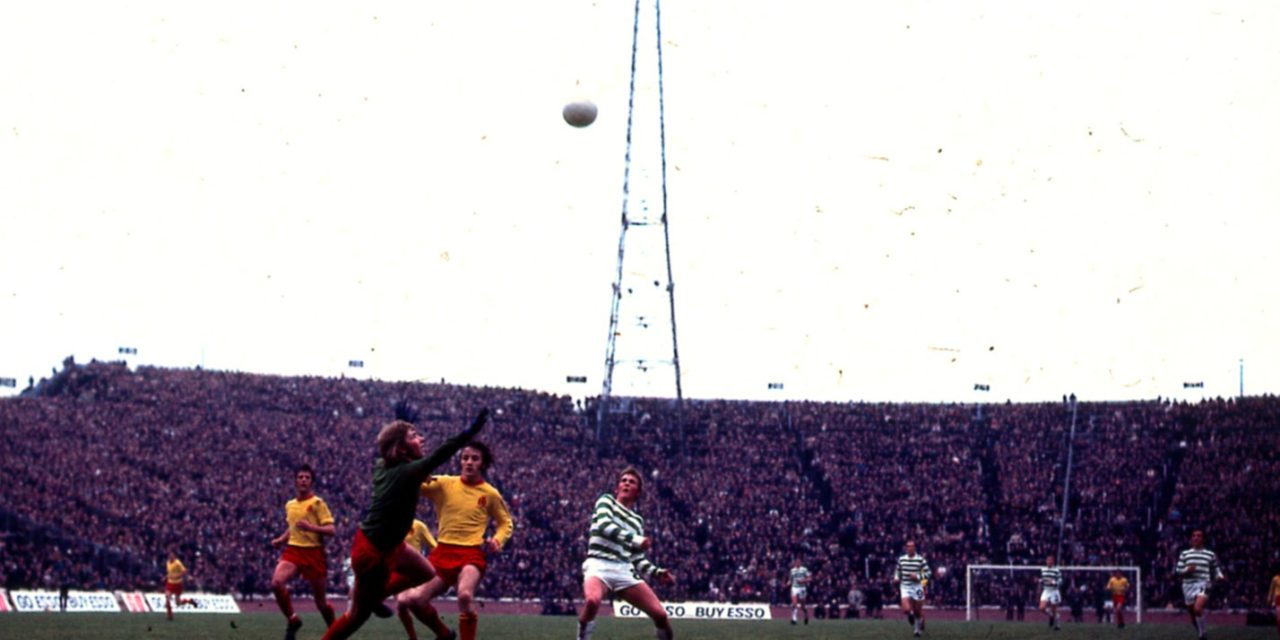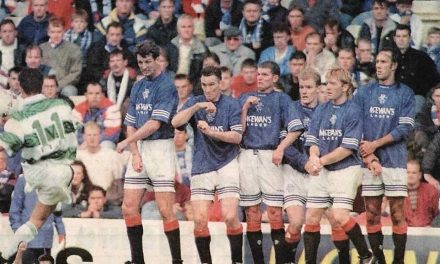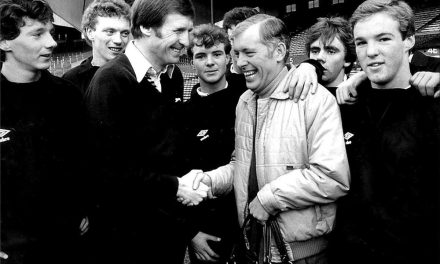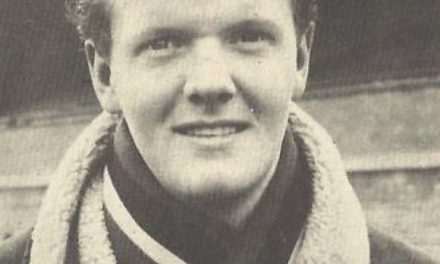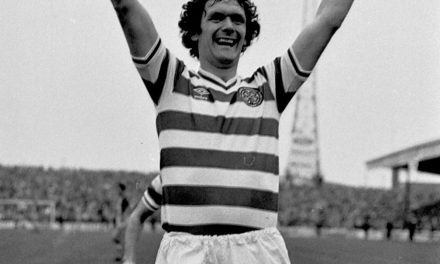Normally in this series I would focus on an old fixture against the opposition for the forthcoming Celtic fixture. However, today marks the 50th anniversary of one of the most remarkable results in Celtic’s history when they faced Partick Thistle at Hampden in the League Cup final and this deserves to be remembered.
It’s hard to describe just how strong favourites Celtic were on that day. This was a Celtic side still at their peak under Jock Stein with an array of talented players. The Lisbon Lions, McNeill, Johnstone, Murdoch and Lennox were still there with the excellent younger crop of players breaking through – Hay, Connelly, Macari and Dalglish. Just 18 months previously Stein’s man had been in the 1970 European Cup final against Feyenoord and were rated as one of Europe’s finest teams.
Celtic’s route to the final seemed assured when they demolished Rangers home and away by 2-0 and 3-0 respectively in the early group stages. Clydebank and St Mirren had been academic in later rounds and Partick Thistle were not expected to be much stiffer opposition in the final. As for the Jags, they had been promoted the previous season and were still finding their feet in the top league. There was a warning sign for Celtic that they beat Rangers 3-2 at Firhill. Their main assets were a fine group of young players which their manager, Davie McParland, had nurtured, Rough, Hansen (John), Forsyth, Glavin and McQuade were all said to be assured of a great future in the game.
Sam Leitch’s closing words on the BBC’s Grandstand’s Football Focus had been that ‘In Scotland it’s League Cup final day at Hampden Park, where Celtic meet Partick Thistle, who have no chance.’ It was said humorously but perhaps those words served to inspire Thistle or perhaps even to lull Celtic players into complacency. Who knows?
A respectable crowd of 63,000 crows turned out at Hampden on a pleasant autumnal day. There was a blow for Celtic beforehand when their inspirational captain, Billy McNeill, was ruled out through injury. This meant that Bobby Murdoch would be Celtic captain. The teams were:
Partick – Rough, Hansen, Forsyth, Glavin Campbell, Strachan, McQuade, Coulston, Bone, Rae, Lawrie Sub Gibson
Celtic – Williams, Hay, Gemmell, Murdoch, Connelly, Brogan, Johnstone, Dalglish, Hood, Callaghan, Macari Sub Craig
To the astonishment of the crowd Thistle attacked Celtic from the start. In 10 minutes Alex Rae gave then the lead with a fine volley and in 15 minutes Bobby Lawrie scored when his shot was deflected past Evan Williams by Davie Hay. Celtic, 2-0 down, would still have been confident of coming back but in 20 minutes Jimmy Johnstone was taken off after an overzealous tackle by Ronnie Glavin. This was to be a major factor in the game. Jock Stein had curiously named Jim Craig as his substitute player and there was only one sub in those days. This was strange as Stein was known to prefer attacking players as subs and with Johnstone gone Celtic had no natural width in their team and lacked balance in attack.
Thistle took advantage of the confusion in Celtic’s set up with Craig at right back and Hay pushed into midfield. The Celtic defensive partnership of Connelly and Brogan had looked uncertain from the start and this all combined to allow Thistle to score two more goals before half time through McQuade and Bone with Celtic’s defence being described as being ‘all over the place’.
There can seldom have been a more sensational half time score than Celtic 0-4 Partick Thistle. There are apocryphal stories of Rangers fans actually leaving the Rangers v Motherwell game at Ibrox to rush over to Hampden to witness the spectacle of something so unusual.
A young Kenny Dalglish scored in 70 minutes but Celtic could not raise an expected late rally. The final score was 4-1 and there were warm handshakes at the end as Celtic players took their defeat in dignified fashion. Most Celtic fans actually stayed on to witness Thistle captain, Alex Rae, lifting the trophy, something that the Thistle chairman commented on at a later date.
That game has now gone down in Scottish football folklore. On the following Saturday, Thistle lost 8-3 to Aberdeen at Pittodrie and a few weeks later Celtic travelled to Firhill to beat them 5-1. Unpredictable does not begin to describe it. To put Thistle’s achievement into context Celtic did not lose another game for six months, until April 29, when they had already won the league. They were also very close to reaching yet another European Cup final when they lost to Inter Milan on penalty kicks.
I was 5 years old and have a very vague memory of my Dad laughing when he returned from Hampden that day. He put it down to one of those days which it certainly was. However, it is not Celtic’s failing that the 1971 final should be remembered for but the day in which the ‘Maryhill Magyars’ hit top form and gave Scottish football a day it will never forget.

